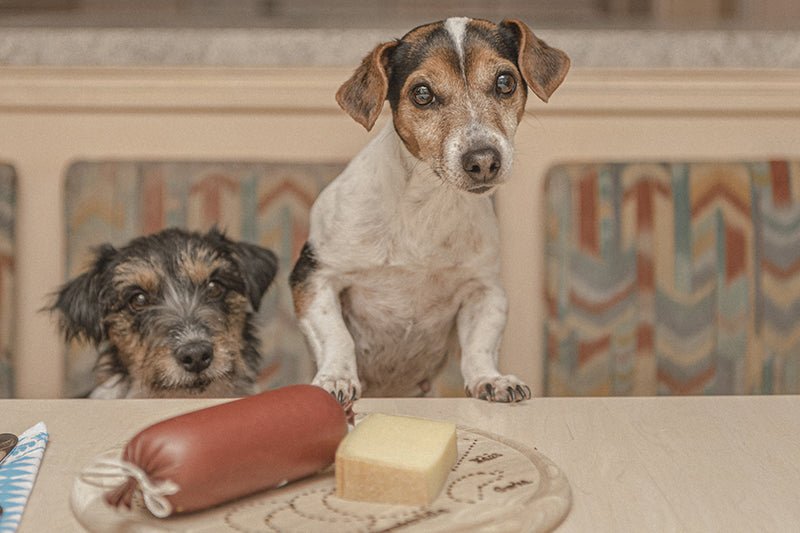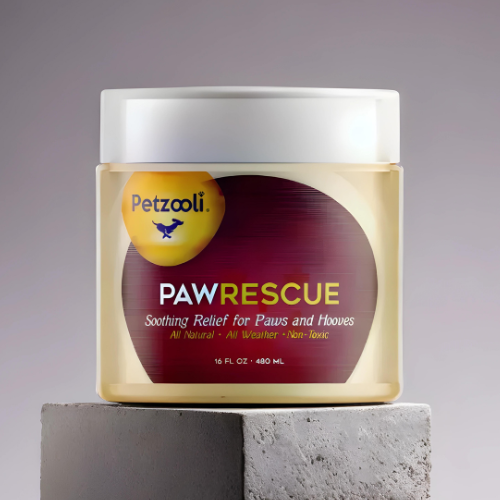
Why is Your Dog Not Eating but Loves Treats? Unmissable Insights
Share
As a health-conscious pet owner, it's deeply troubling when your furry companion refuses to eat their meals but eagerly chomps down on treats. This perplexing behavior can leave you asking, 'Why is your dog not eating his food but will eat treats?' Understanding the reasons behind this can be life-changing for your dog's health and well-being.
Dogs can be picky eaters for various reasons. If your dog isn't eating their food but will eat treats, the problem could stem from their feeding environment, physical health, or psychological state. Knowing the underlying factors is crucial to addressing the issue effectively.

Behavioral Reasons Behind Picky Eating
Preference and Palatability
Dogs often find treats more palatable due to their high-fat and sugar content. The enhanced taste can make regular kibble seem bland in comparison. This creates a preference that can lead to the refusal of normal meals.
The Role of Routine
Just like humans, dogs thrive on routine. Any changes in feeding times or the type of food can disrupt their eating habits. Consistency is key to maintaining a healthy eating pattern.
Misleading Your Dog with Treats
If you frequently use treats to train or reward your dog, they might start associating treats with good behavior and regular food with a lack of reward. This misleading association can lead your dog to prefer treats over meals.

Health Concerns to Watch Out For
Dental Issues
Dental problems, such as tooth decay or gum disease, can make chewing kibble painful for your dog. Treats, being softer, are easier to consume, potentially signaling underlying dental health issues.
Digestive Problems
Gastrointestinal discomfort can deter a dog from eating regular food. Dogs might prefer treats that are easier to digest if they're experiencing issues like bloating, constipation, or digestive pain.

Psychological and Environmental Factors
Stress and Anxiety
Just like in humans, stress and anxiety can affect a dog's appetite. Environmental changes, new pets, or loud noises can create an unsettling environment that deters them from eating.
Environment and Bowl Placement
The feeding environment plays a significant role. Dogs might refuse to eat if their food bowl is in a noisy or uncomfortable location. Ensuring a calm and quiet feeding area can encourage better eating habits.

Solutions to Encourage a Healthy Eating Routine
Consistency in Feeding
Maintaining consistent feeding times and sticking to one type of food can help your dog develop regular eating habits. Consistency is key in ensuring that your dog views their meals as a daily routine.
Gradual Transition to New Foods
If you need to change your dog's food, do it gradually. Mixing the new food with the old over a period of days can help them adjust without rejecting their meals entirely.
Visit the Vet
If your dog's eating habits persist, a visit to the vet might be necessary. Underlying health issues, such as dental or digestive problems, should be ruled out by a professional.
For more insights on a dog's diet, you can check Safe Fruits for Dogs.
Internal Recommendations
Understanding your pet's dietary needs is essential. Here are some related topics that may be of interest:
FAQs
Why does my dog eat only treats?
Dogs prefer treats due to their high palatability. It's essential to find a balance to ensure a healthy diet.
Can a change in environment affect my dog's eating habits?
Yes, changes in environment, stress, or anxiety can significantly impact your dog's eating behavior.
What should I do if my dog continues to refuse their food?
If the issue persists, visiting a veterinarian is crucial to rule out underlying health problems.
As an Amazon Associate, I earn from qualifying purchases.
